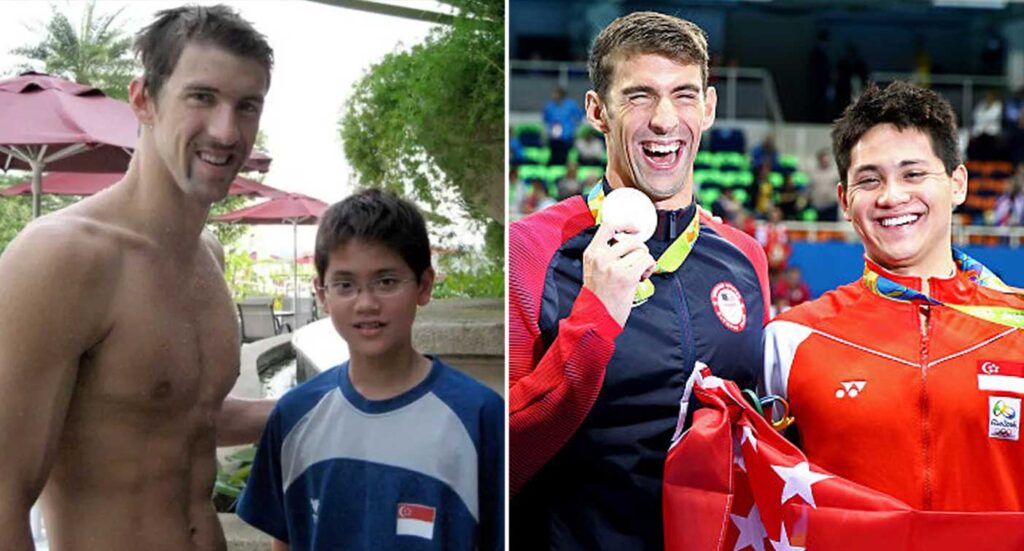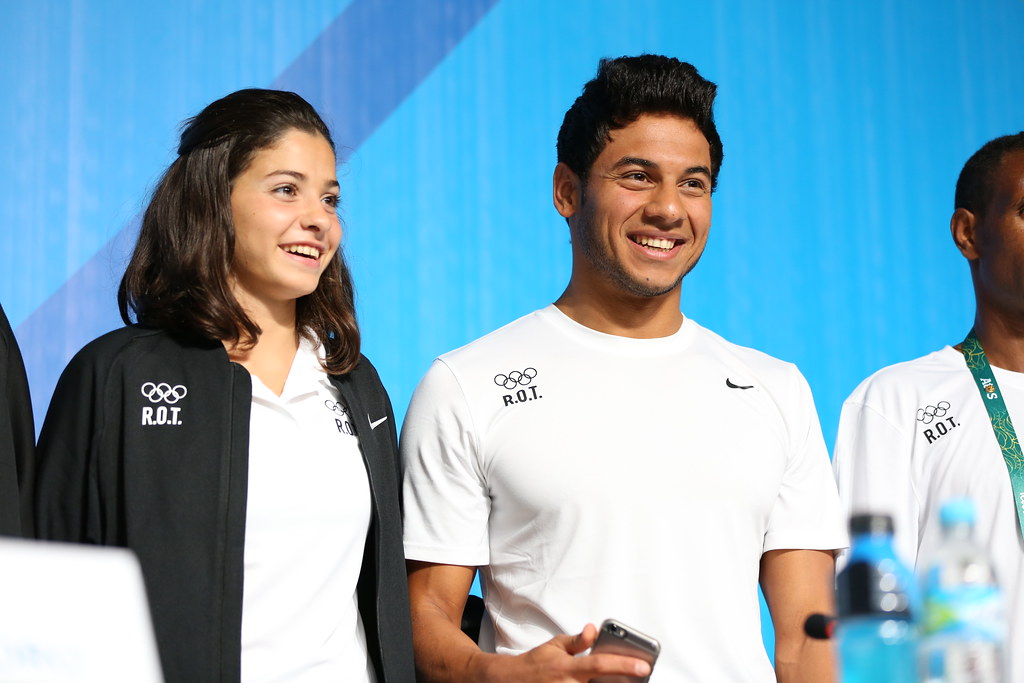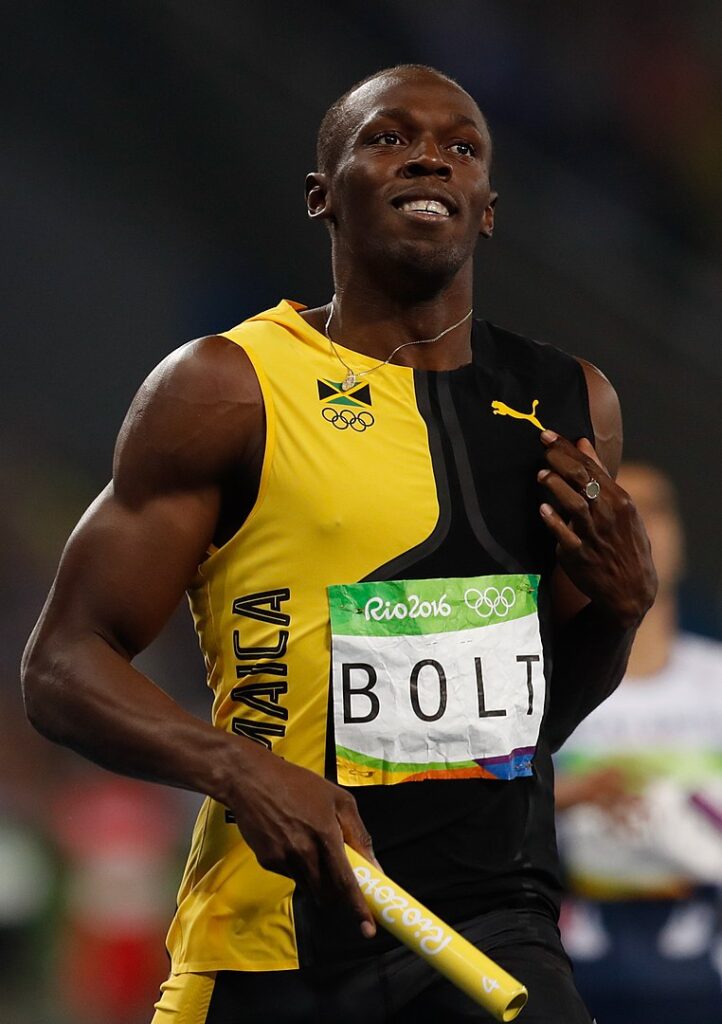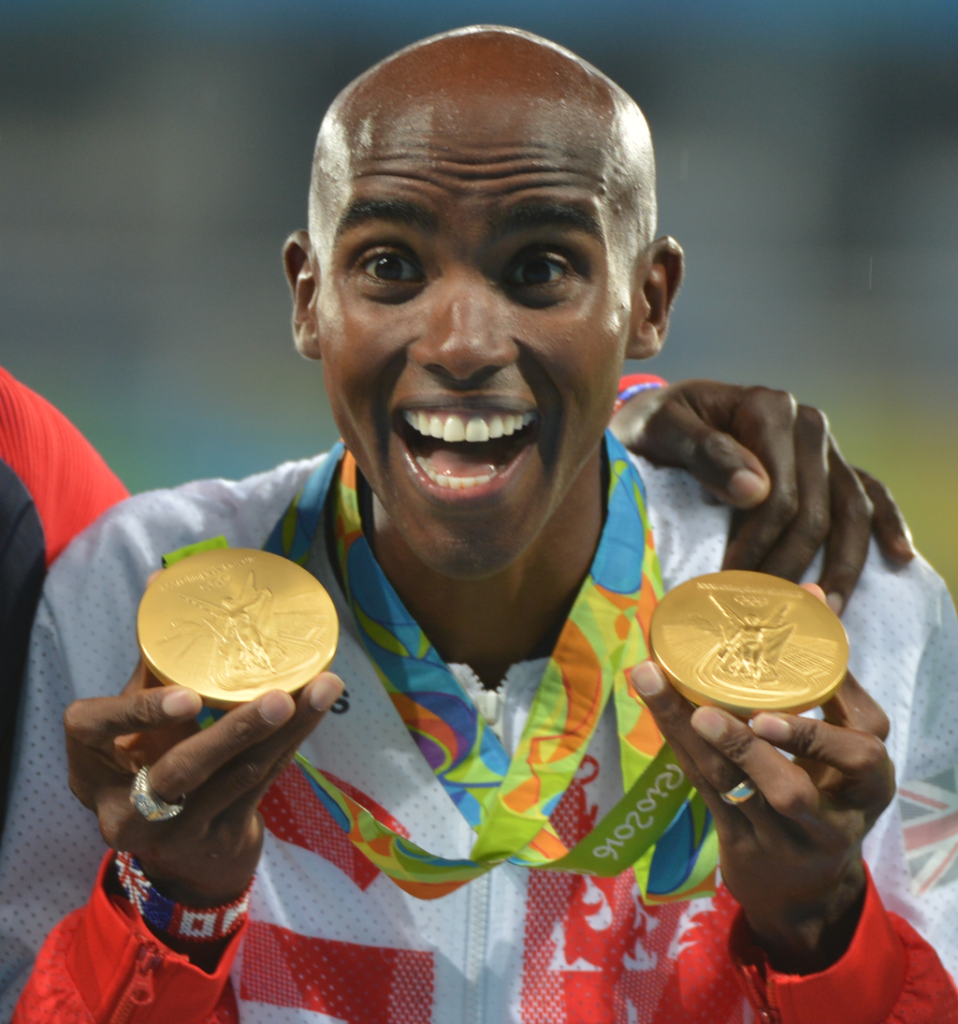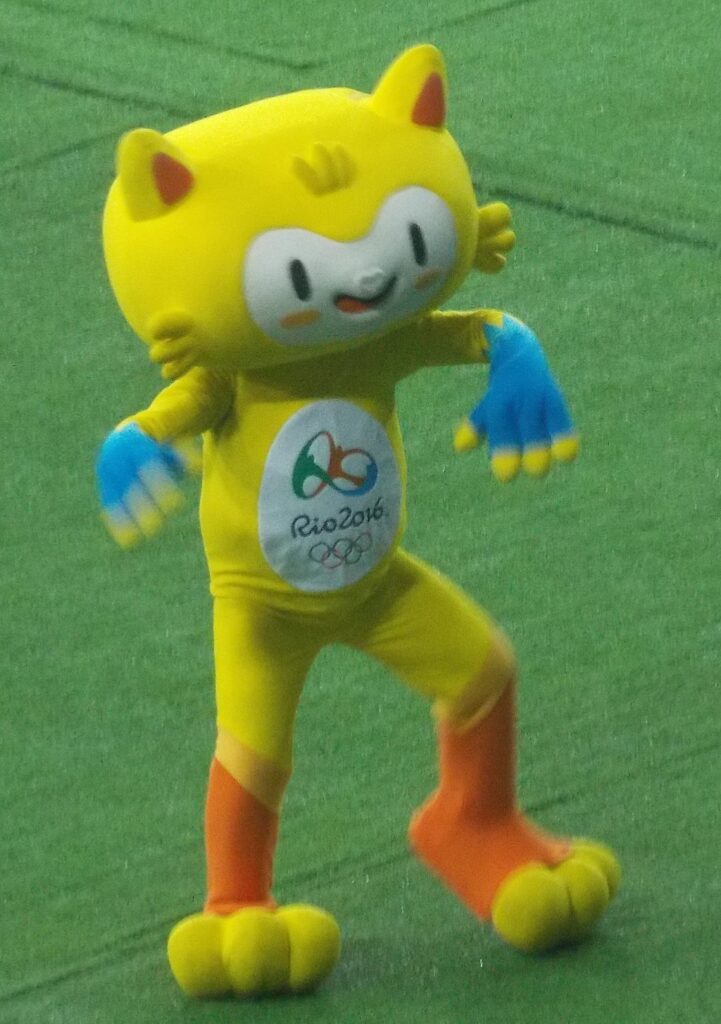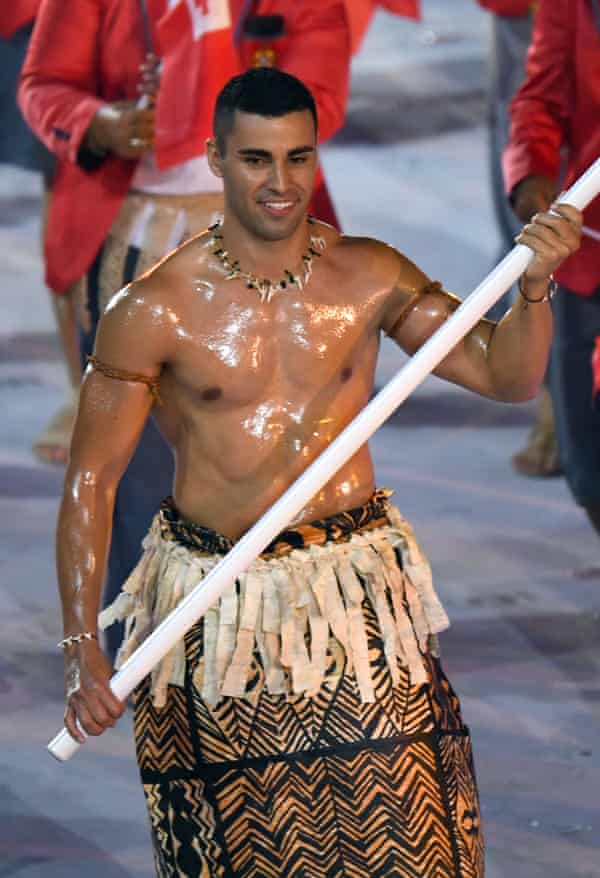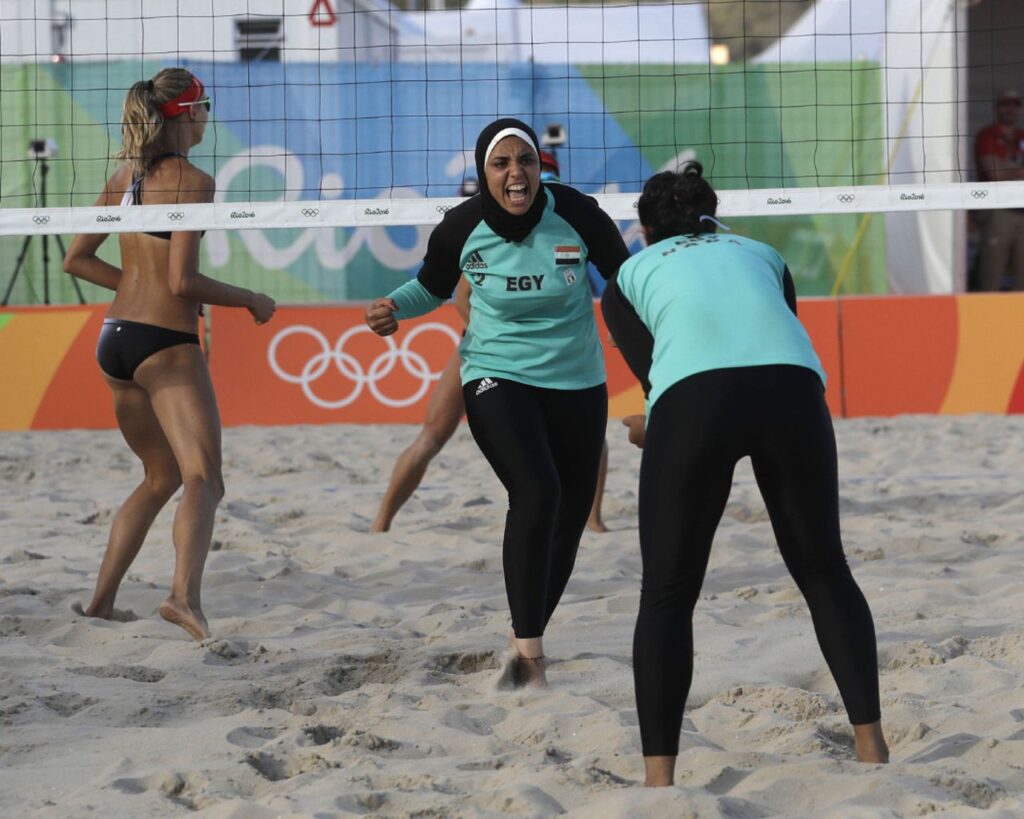Let the competition begin
The U.S. led all competing teams with an impressive total of 121 medals including 46 gold although falling far short of the 83 gold and 174 total medals the Americans won in Los Angeles in 1984. American swimmers led the way with 33 medals with two athletes – Michael Phelps (6) and Katie Ledecky (5) accounting for a third of that total. The Americans also excelled in athletics winning 32 medals 13 of which were gold. And, of course led by the incomparable Simone Biles, American women won nine of the country’s 12 medals in artistic gymnastics.
The swimmers
Although there’s more to swimming than Michael Phelps, his five gold and one silver medal raised his Olympic medal total to 28 and total gold medals to 23. Phelps has won more medals – gold or otherwise – than most countries that have competed in the Games. In terms of total medals, his closest competitor is Larisa Latynina who won 18 gymnastics medals for the U.S.S.R. from 1956-1954. The gap to the next highest gold medal total is even wider. Latynina, Paavo Nurmi, Mark Spitz and Carl Lewis each have nine. And as dominant as Katie Ledecky is in her events, she currently has 10 total medals of which seven are gold.
Perhaps more interesting is the gold Phelps didn’t win – the 100 meter butterfly. That prize went to Singapore’s Joseph Schooling. Schooling, who was inspired to swim competitively by Phelps not only set a new Olympic Record but won his country’s first ever Olympic gold medal.
(From Yahoo News Singapore)
The 2016 Olympics wasn’t the first to have athletes compete under the Olympic flag but it was the first to have an Olympic Refugee team. Comprised of 10 athletes, two Syrian swimmers probably made the biggest splash. Rami Anis, who fled to Turkey, received a standing ovation after he set a personal best in the men’s 100m freestyle.
But the most inspirational story likely belonged to Yusra Mardini (seen below with Anis).
(From Flickr)
Mardini was in a small boat meant for six people but carrying 18 refugees only four of whom could swim. Some distance from the island of Lesbos in the Aegean Sea, the motor died and the skiff began to take on water. She, her sister, and the two others who could swim jumped in the water and pulled and pushed the boat for more than three hours before reaching the shore.
In Track & Field, it’s lather, rinse, repeat
The shampoo catchphrase might have been a workable motto for some of the competition in athletics starting with two particularly notable performances. One came from this Jamaican chap
(Wikimedia Fernando-FrazaoAgencia-Brasil CC By-SA 3.0)
and the other from this representative of Great Britain.
(From Flickr U.S. Army CC BY-SA 2.0)
At the top, of course is Usain Bolt. Bolt, establishing himself as unquestionably the greatest sprinter of all-time, became the first sprinter in Olympic history to win both the 100 and 200 meter races in three consecutive Olympic Games. He also anchored the Jamaican team to a second consecutive gold medal in the 4 x 100 meter relay.
If you don’t recognize the man joyously holding his pair of Rio gold medals he is Mo Farah. Farah had two reasons to feel particularly elated. First, he became the first man to duplicate the feat of Finland’s Lasse Virén and win the 5,000 and 10,000 meter races in consecutive Games. Second, his win in the 10k is made more remarkable (and provides that extra celebratory note) because he recovered from a fall nearly halfway through the race.
Although none of these women won any medals in the marathon, it featured not one but two pairs of twins and, for good measure, one set of triplets. The top finishers were Kim Hye-song and Kim Hye-gyong from North Korea who finished tenth and eleventh respectively. German twins Anna and Lisa Hahner finished 81st and 82nd. Two of the Estonian triplets finished the race. Lily Luik finished 97th, sister Leila 114th. The third, Liina, didn’t finish.
In his sixth and final throw in the discus competition, Christoph Harting of Germany flung the disc father than he ever had before. His personal best throw of 68.37 meters not only secured him the gold medal but allowed him to succeed his brother Robert who won gold in London in 2012 marking the first time in Olympic history that one brother succeeded another as Olympic champion in the same individual event.
A little bit of this, a little bit of that
The mascot for the games was Vinicius.
(Wikimedia Commons by-Minerva97-CC-BY-SA-4.0)
Named in tribute to Brazilian poet and lyricist Vinicius de Moraes, this Vinicius symbolized the agility of cats, sway of monkeys, grace of birds, and the diversity and exuberant nature of Brazil’s people and culture.
Among the Games’ most memorable images was that of Tongan flag bearer and taekwondo athlete Pita Taufatofua emerging from the tunnel during the Opening Ceremony
(From TheGuardian.com)
in traditional garb and (perhaps?) baby oil.
Yet another image took the internet by storm a bit later. When the Egyptian beach volleyball team of Doha Elghobashy and Nada Meawad took to the sand at 18:30 on 7 August,
(From TorontoStar.com)
they became the first players in their sport to compete wearing hijab.
Bulgarian and Russian weightlifters were banned from Rio Olympics for numerous anti-doping violations.
Kuwait was banned in October 2015 for the second time in five years over government interference with the country’s Olympic committee. Several Kuwaiti athletes competed under the Olympic Flag as Independent Olympic Athletes.
The Games generated 27 new world records and 91 new Olympic records. The records were set in archery, athletics, canoeing, cycling track, modern pentathlon, rowing, shooting, swimming, and weightlifting.
Athletes from Bahrain, Ivory Coast, Jordan, Kosovo, Puerto Rico, Singapore, Tajikistan, and Vietnam each won the first gold medals for their respective countries. But the most memorable first national gold medal may have come from Fiji’s rugby sevens team who celebrated their 43-7 win over Great Britain in song.
The most bizarre happening of the Games must go to Ryan Lochte and three other American swimmers for what came to be called Lochtegate or #LochMess.
Lochte claimed that he and his teammates had been robbed at gunpoint by “armed robbers posing as police” after a night out in Rio. The ‘robbers’ were actually security guards at a gas station where the swimmers allegedly urinated outside the bathroom and where Lochte allegedly vandalized a framed poster. The swimmers then allegedly tried to buy the guards’ silence with cash.
On 23 August USA Today released the findings of an on-site investigation at the gas station that “raised questions about Rio cops” and supported “Lochte’s later account in which he said he thought the swimmers were being robbed.”
Still, the swimmer was indicted for falsely reporting a crime on 26 August. Lochte, who lost many of his endorsements and faced a 10-month suspension by USA Swimming, later apologized for not being more candid about the gas station dispute.
Root, root, root for the home team
Although the host nation might not always top the leaderboard, it does typically surpass its highest medal total from past Olympics. This was the case for Brazil in 2016 when its athletes won seven gold medals and 19 total finishing 13th in the overall medal standings.
On the penultimate day of the Games, Brazil’s men’s football team won the gold medal over Germany by winning a shootout 5-4. Brazil’s star striker Neymar gave his team a 1-0 lead in the 27th minute on a brilliant free kick but the German squad knotted the score in normal time. With the shootout tied at four, Brazil’s goalie Weverton denied the shot by Nils Petersen and Neymar stepped to the spot. Here’s the entire sequence:
Neymar had missed Brazil’s humiliating 7-1 loss to Germany in the 2014 World Cup semifinal in Belo Horizonte due to injury but this goal gave him his ultimate revenge.
And the first shall be last
No recap of the 2016 Games would be complete without mentioning the story of Rafaela Silva. Silva was born in the notorious favela called Cidade de deus (City of god) where she lived until she was eight. Trying to provide some structure in the life of a child who spent much of her time fighting with boys, getting expelled from school, and engaging in pipa combate,
her parents enrolled her in judo classes a sport in which she excelled so much that she represented Brazil in the 2012 London Olympics.
Sadly, she was disqualified for an illegal hold which was soon followed by a barrage of racial epithets and insults courtesy of Twitter and other anti-social media. (One text message she received read, “The place for a monkey is in a cage. You are not an Olympian.”) Silva was so distraught she considered quitting the sport.
She became depressed and took a few months off before returning to win the world championship in 2013. Then on 8 August 2016 she stepped on the mat in an arena just a few kilometers from Cidade de deus. Facing Sumiya Dorjsuren of Mongolia in the 57kg weight class, Silva scored a convincing victory to claim the host country’s first gold medal of the 2016 Games.
